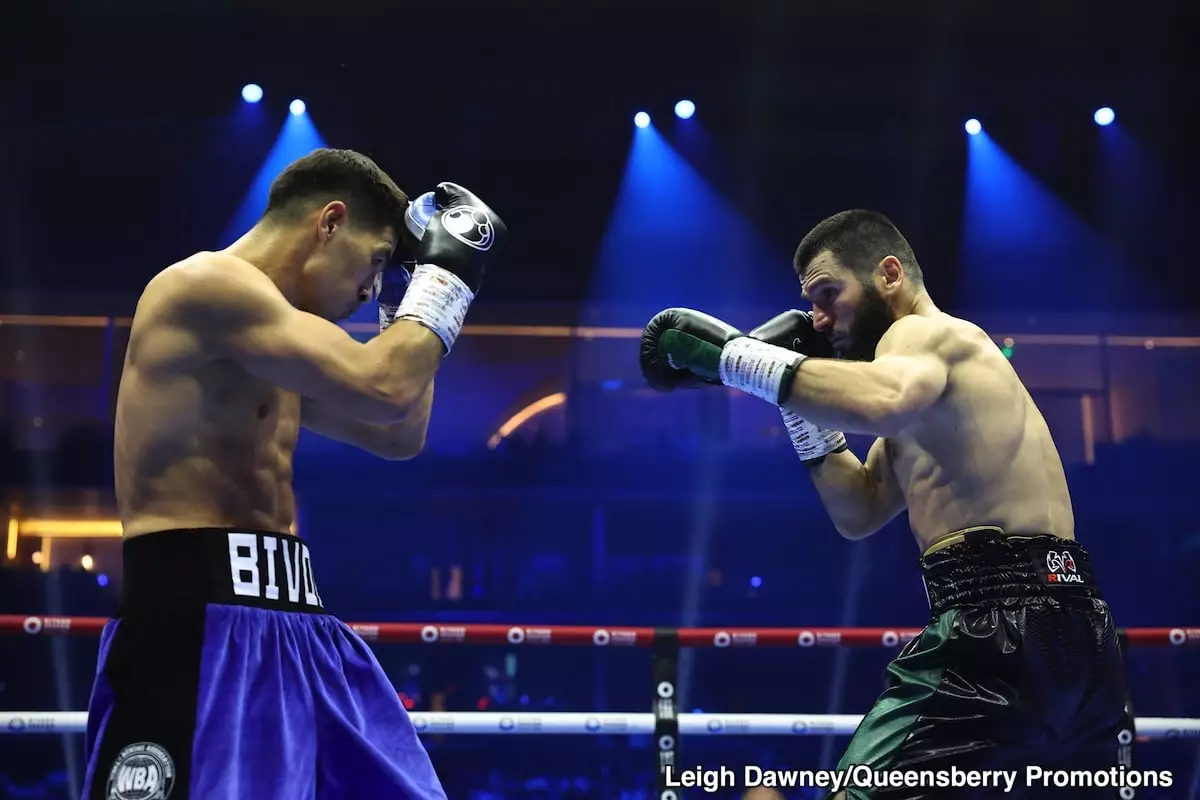The recent bout between Dmitry Bivol and Artur Beterbiev has ignited a firestorm of debate among boxing fans and analysts alike. Following Bivol’s defeat by a majority decision on October 12 at the Kingdom Arena in Riyadh, Saudi Arabia, his camp filed a protest with four governing boxing bodies, aiming to secure a rematch. The argument posited by Bivol’s team hinges on the assertion that the majority of viewers believed Bivol emerged victorious from the match. However, such claims pose significant challenges. This assertion raises questions about the nature of perception in sports and the subjectivity of judging.
While the majority of viewers might have preferred a different outcome, there is no concrete method for quantifying public opinion in such scenarios. In a sport defined by its clear-cut rules and decisions, invoking viewer sentiment blurs the boundary between legitimate complaint and a desperate grasp at validation. This tactic may be viewed as an ill-conceived argument; boxing’s nature often calls for more than just public opinion to articulate a fighter’s efficacy in the ring.
Strategic Choices in a Rematch
Should a rematch come to fruition, there are critical strategic decisions that could influence the outcome. The first point of consideration is the physical layout of the fight. If a rematch is sought by Bivol, having the bout in a smaller ring could significantly impact his mobility. The 39-year-old Beterbiev displayed his ability to adapt and cut off the ring effectively, especially in the latter rounds. Witnessing Bivol employ excessive lateral movement may have been a smart tactic during the early rounds, but after sustaining damage from Beterbiev, it became evident that Bivol’s strategy required adjustment.
Moreover, the rematch could evolve into a more fan-friendly spectacle should both fighters come with a revised game plan. A Beterbiev against Bivol II might offer the chance for both fighters to amend past mistakes—particularly for Bivol, who was criticized for what some perceived as a lack of assertiveness and aggression. If he aims to regain his stature after this defeat, Bivol needs to showcase a more balanced approach rather than falling back on evasive maneuvers.
Bivol’s protest has also not been received favorably by the boxing community. Many fans feel it paints his and his camp’s image in a dim light, likening it to that of a poor sport unable to acknowledge defeat. Engaging in this type of appeal can sometimes lead to detrimental reputational consequences. A prevailing sentiment among fans and analysts, as articulated by boxing writer Jake Donovan, is that these complaints draw unwarranted parallels to historical losses in boxing that were similarly contested, such as the infamous Lewis-Holyfield I. This indicates a lasting criticism of fighters who refuse to accept judgment and the complexities of competitive boxing.
Bivol’s reaction post-fight also seems reflected in how he managed the closing rounds. His reluctance to engage in a greater exchange in the final stretches did little to bolster his standing. The fact that he seemingly attempted to evade and hold in the twelfth round begs the question: was he wasteful with his stamina in earlier rounds? Should he have risked trading blows with the reigning champion rather than at times appearing to ‘survive’ rather than compete?
The implications of this fight on the light heavyweight division are vast. The dynamics surrounding Beterbiev’s title ambitions, along with Bivol’s status, immediately prompt speculation about potential future matchups. Should Beterbiev be open to a bout with either Canelo Alvarez or David Benavidez, both fights seem more enticing than a rematch with Bivol. This suggests that unless Bivol firmly presents himself as an undeniable contender, he risks relegation to secondary competition status within a swirling chaos of talent vying for glory.
As the boxing community watches intently, the possibility of Bivol advancing his career hinges on how he chooses to navigate not just the protest, but also the lessons learned from this defeat. His willingness to acknowledge his responsibilities—from ring strategy to post-fight response—will ultimately delineate his trajectory in a division full of potential but marred by contentious rivalries. The rematch may serve as a pivotal moment for both fighters, highlighting the classic adage: in boxing, every defeat is an opportunity for growth.


Leave a Reply